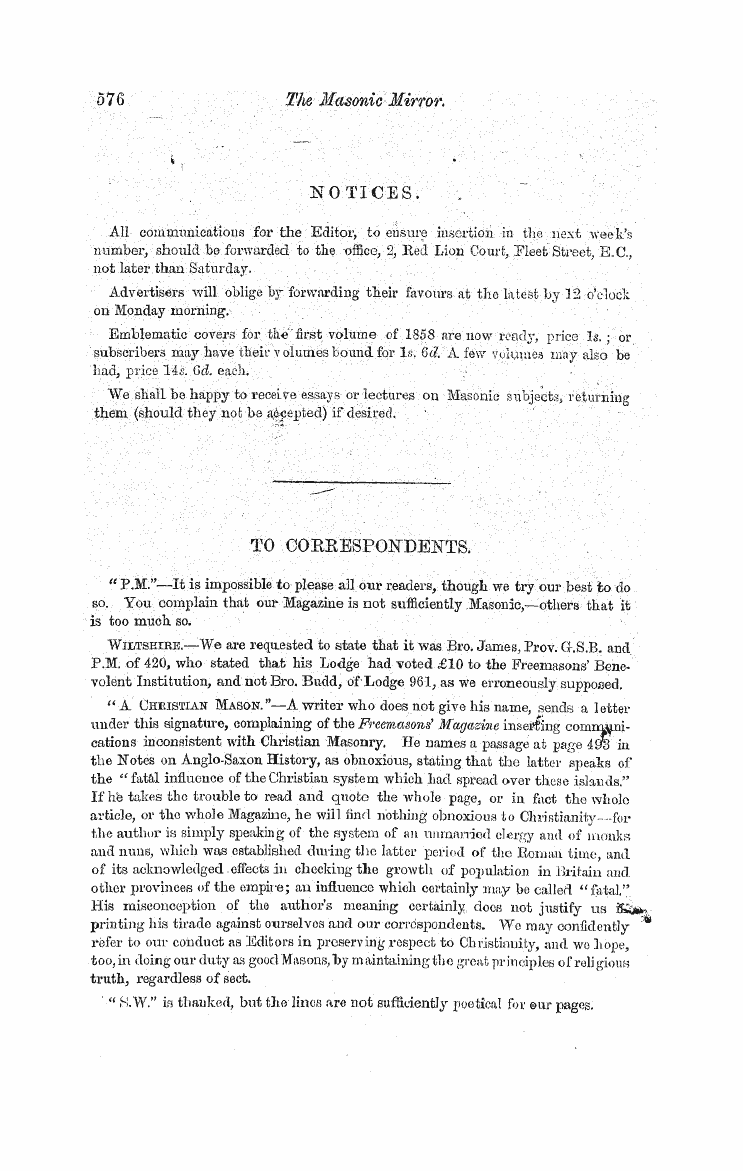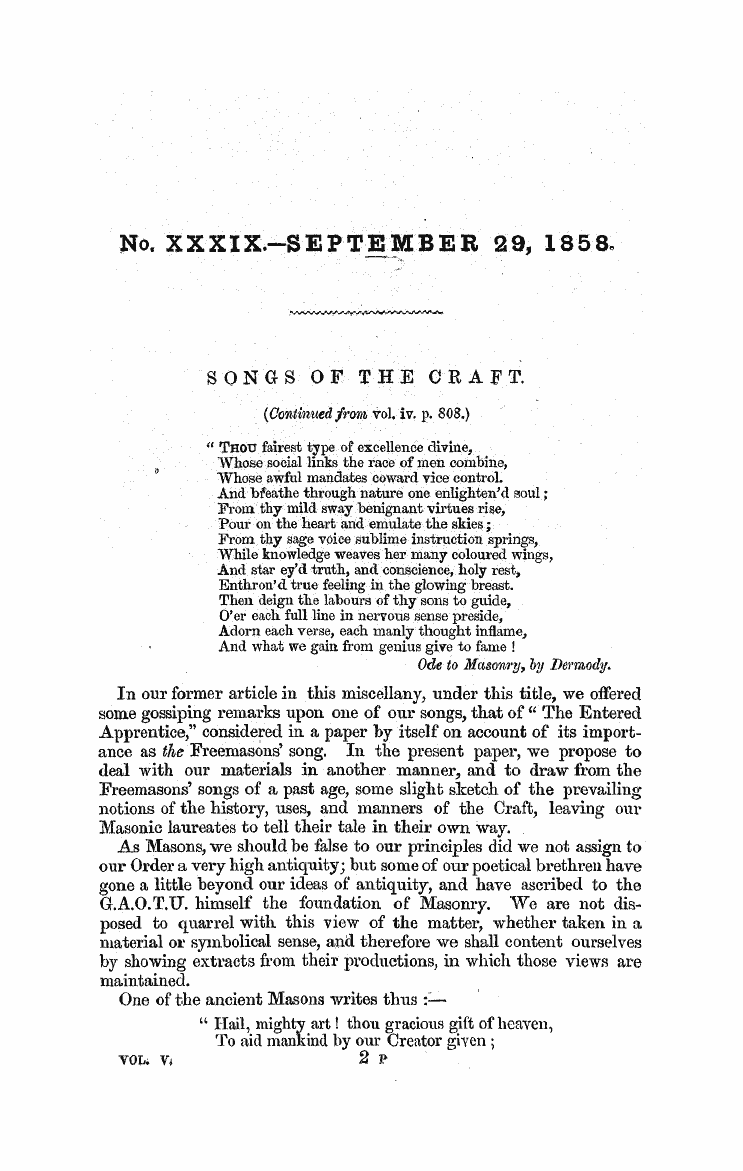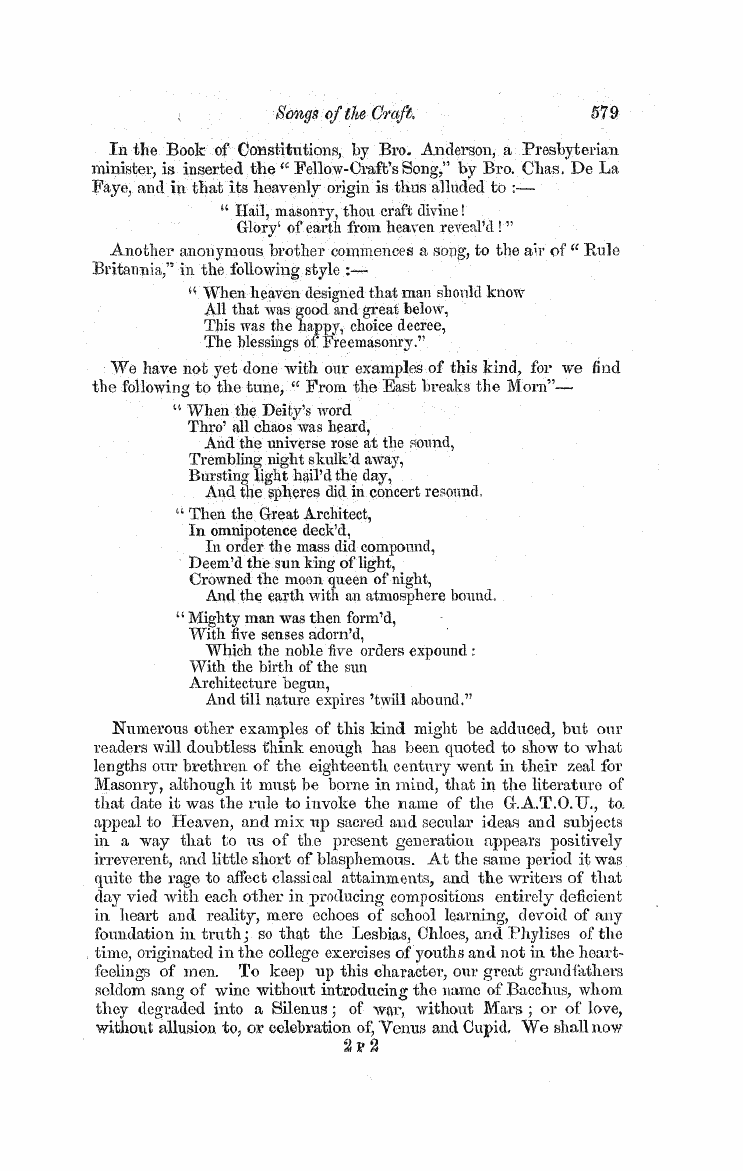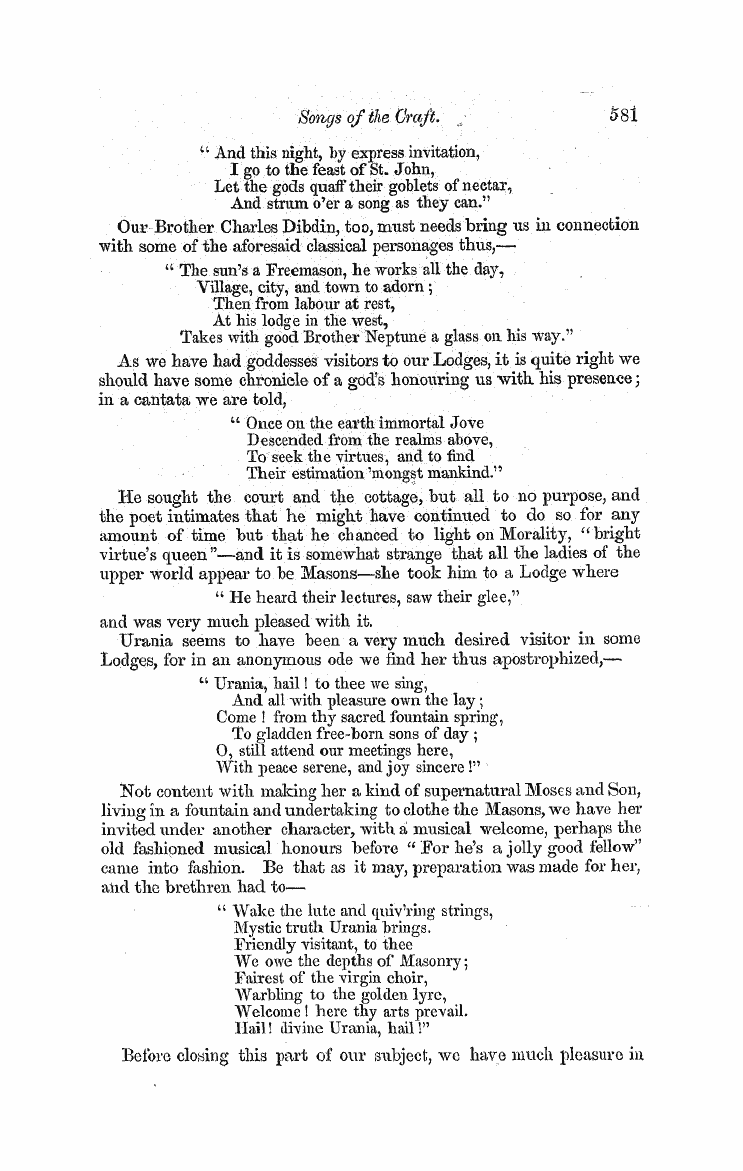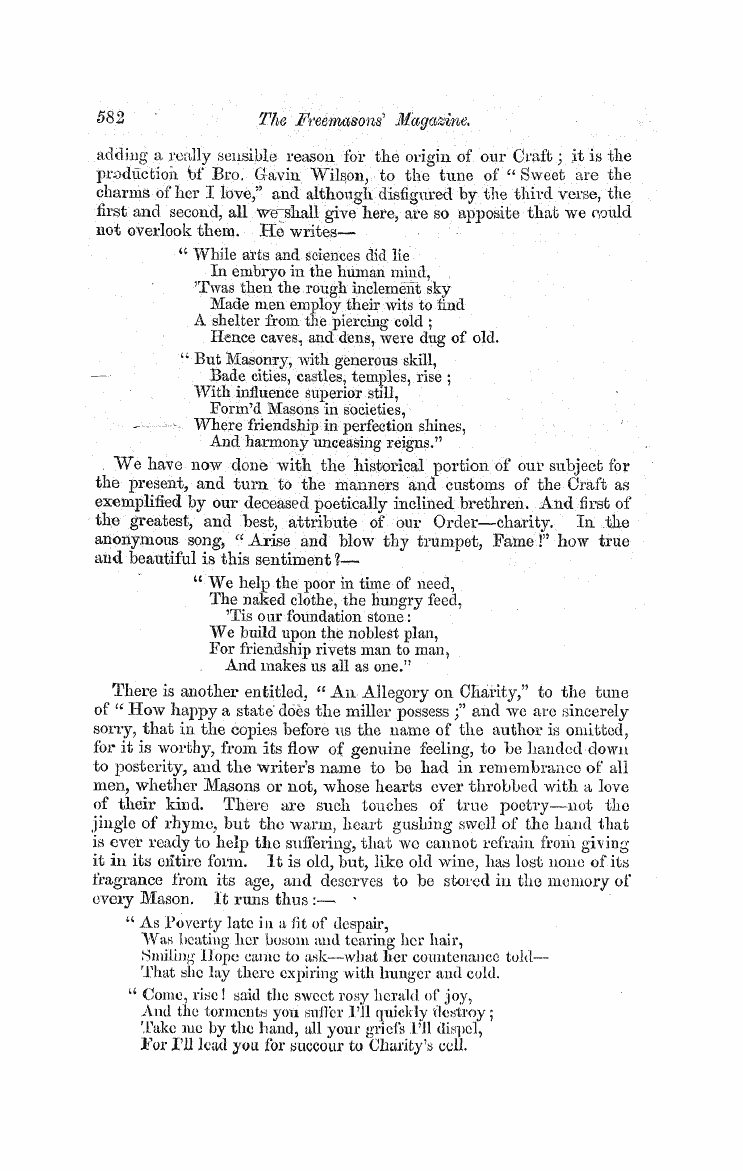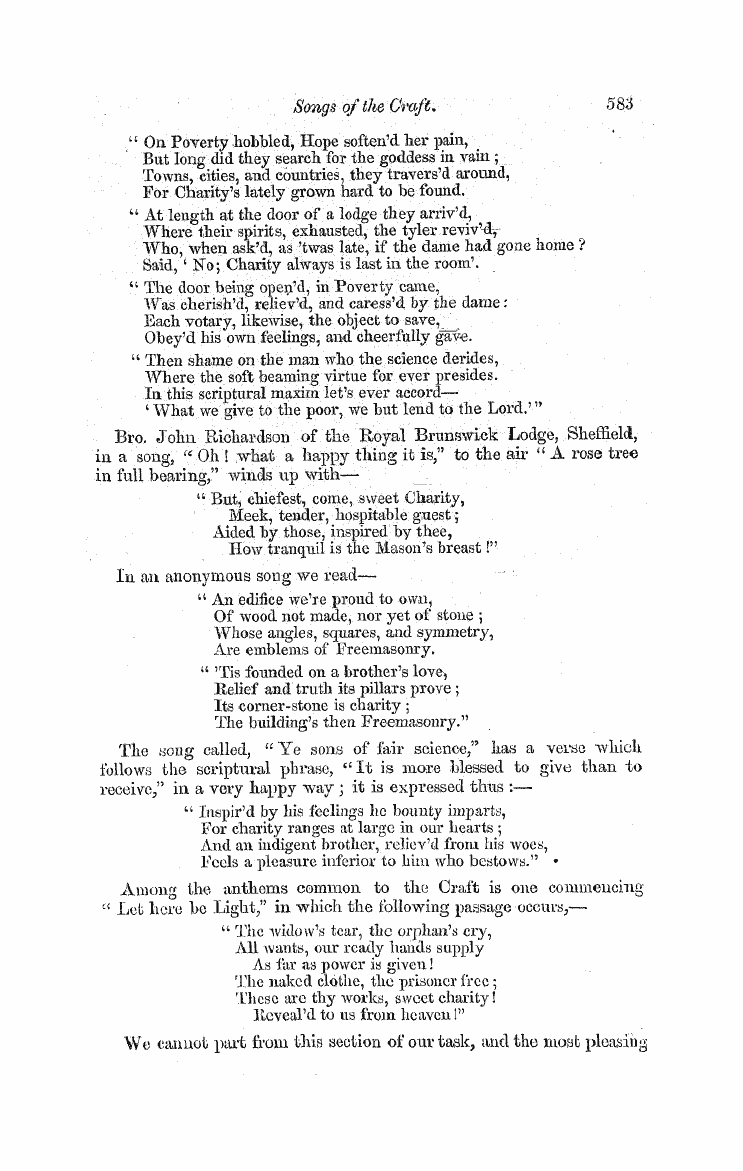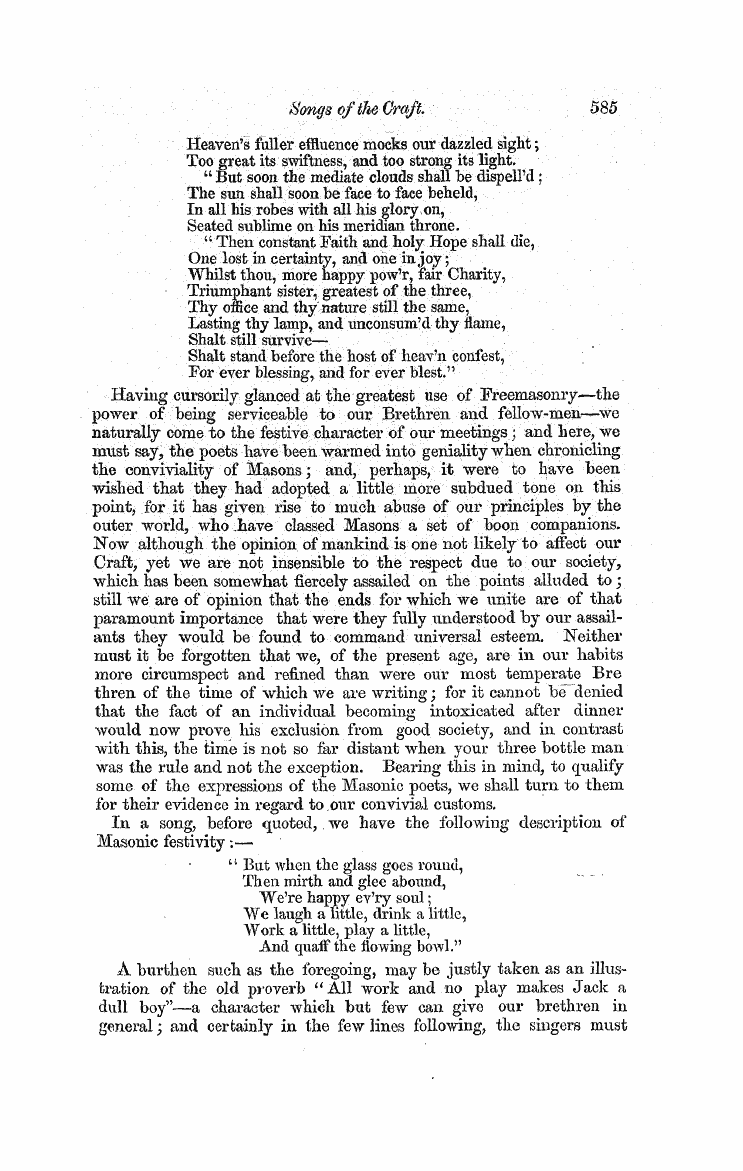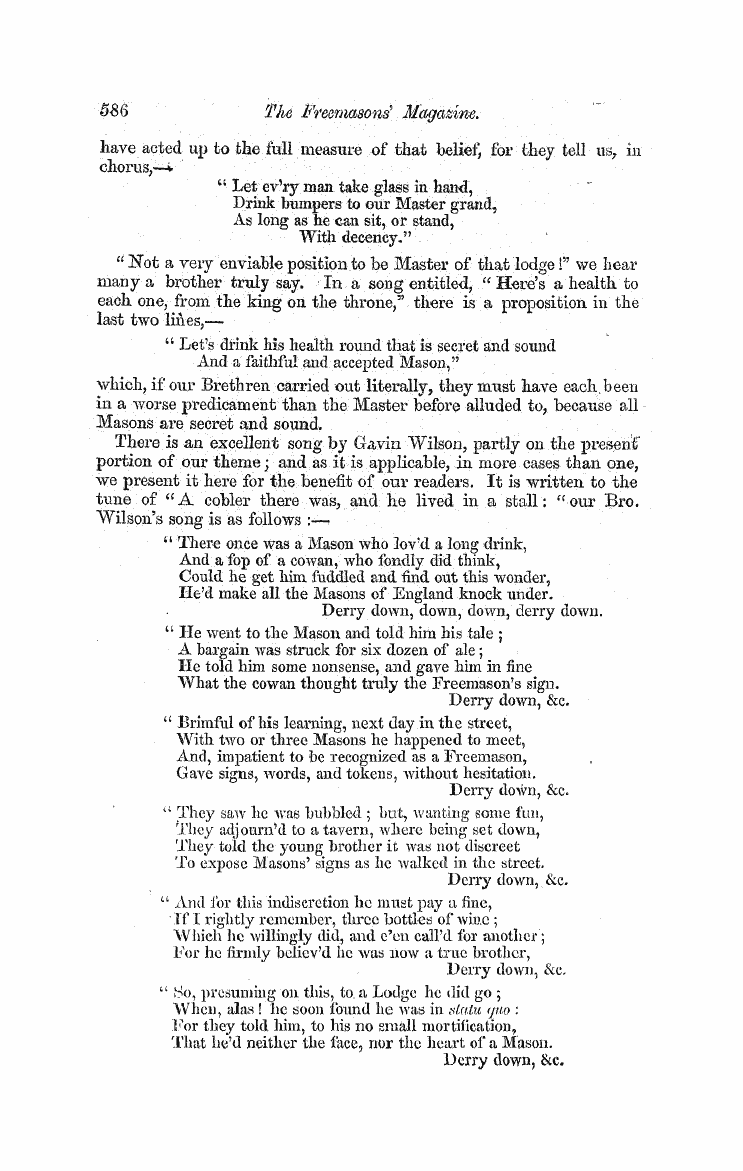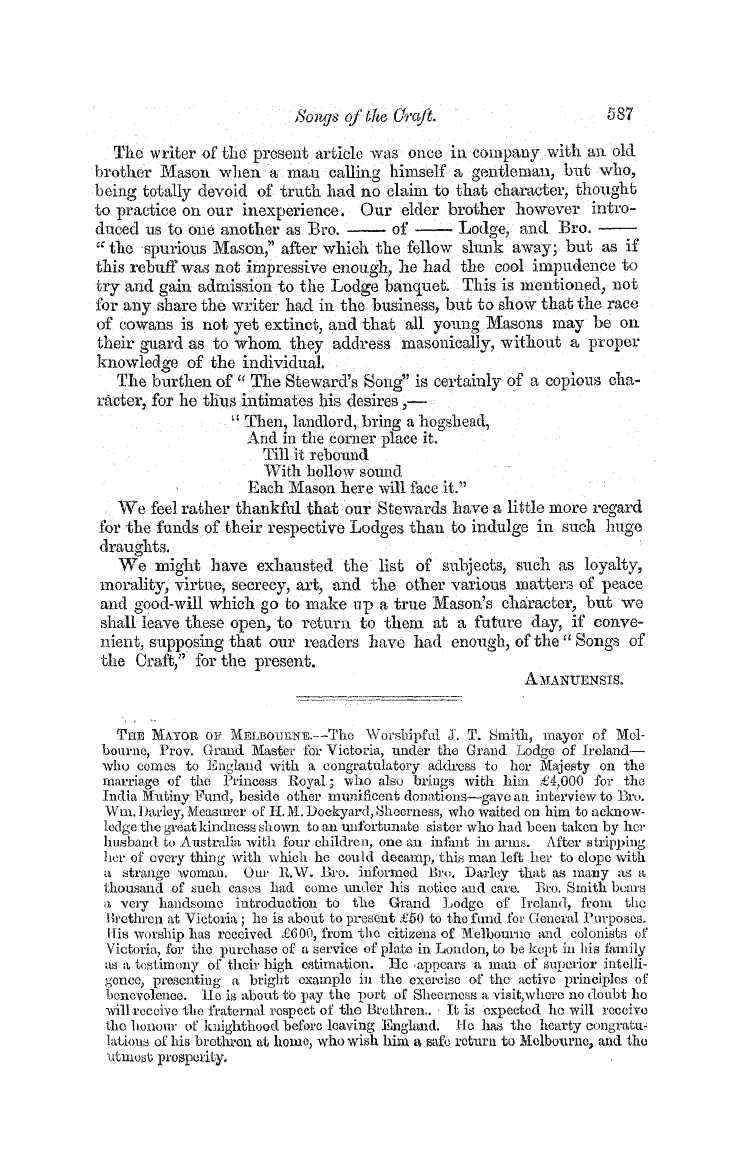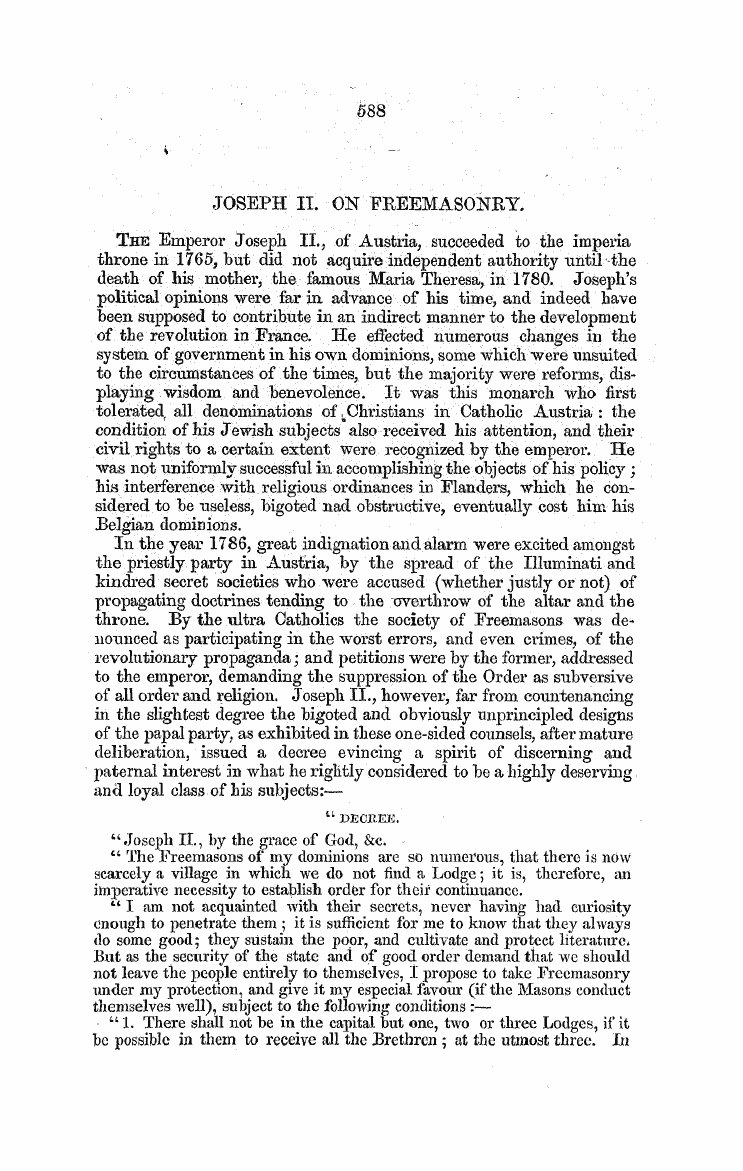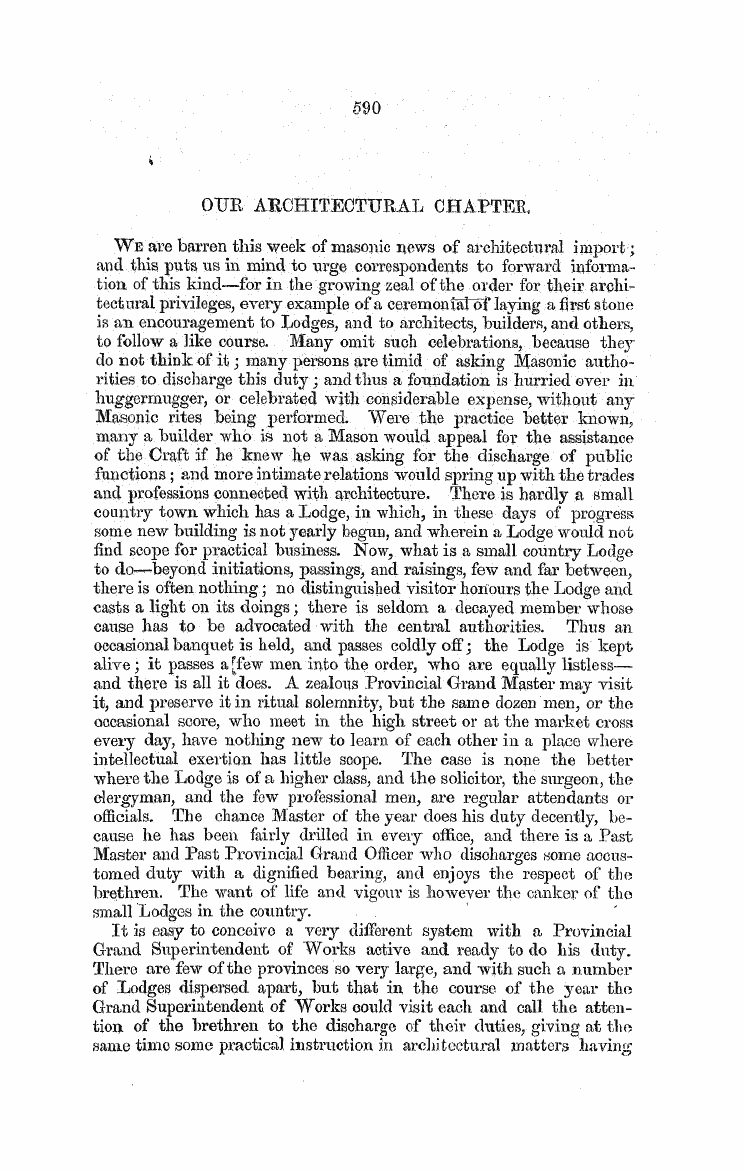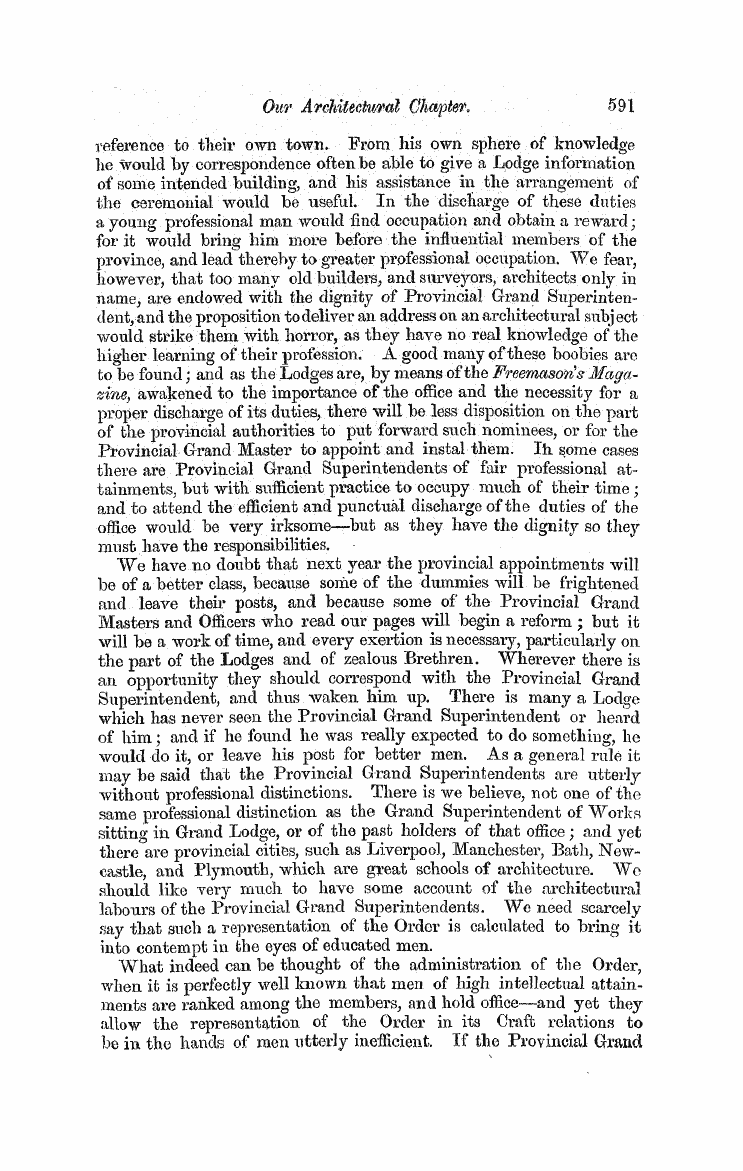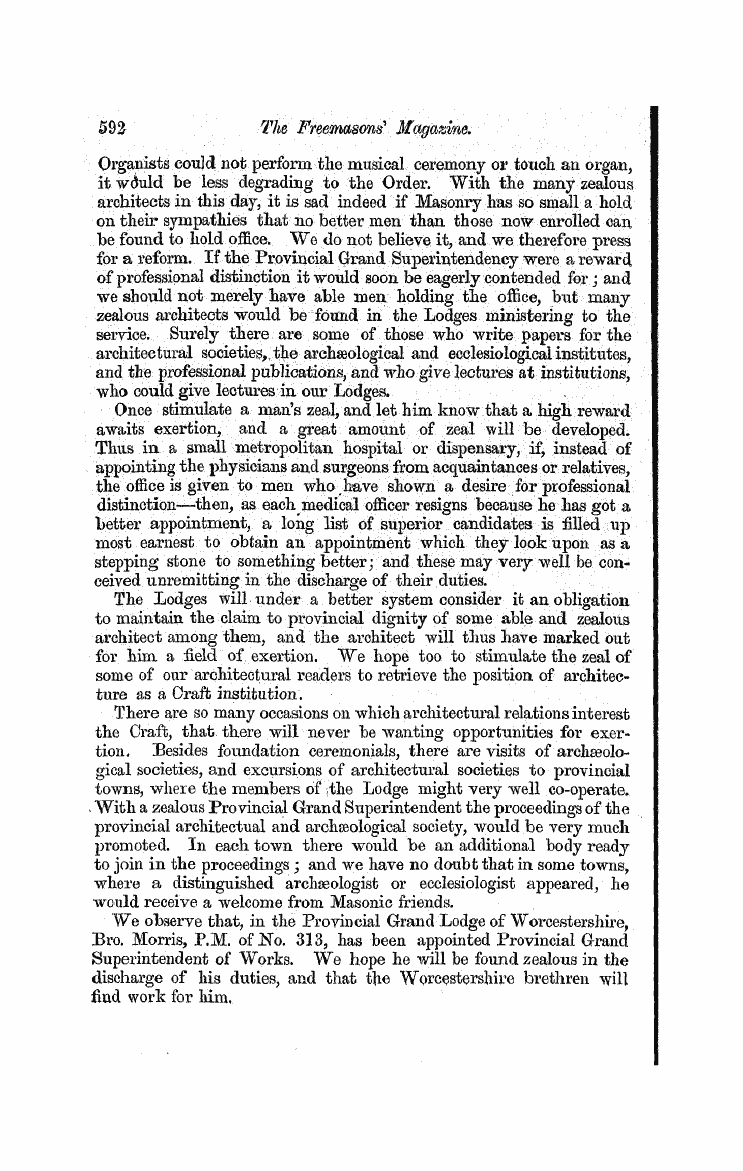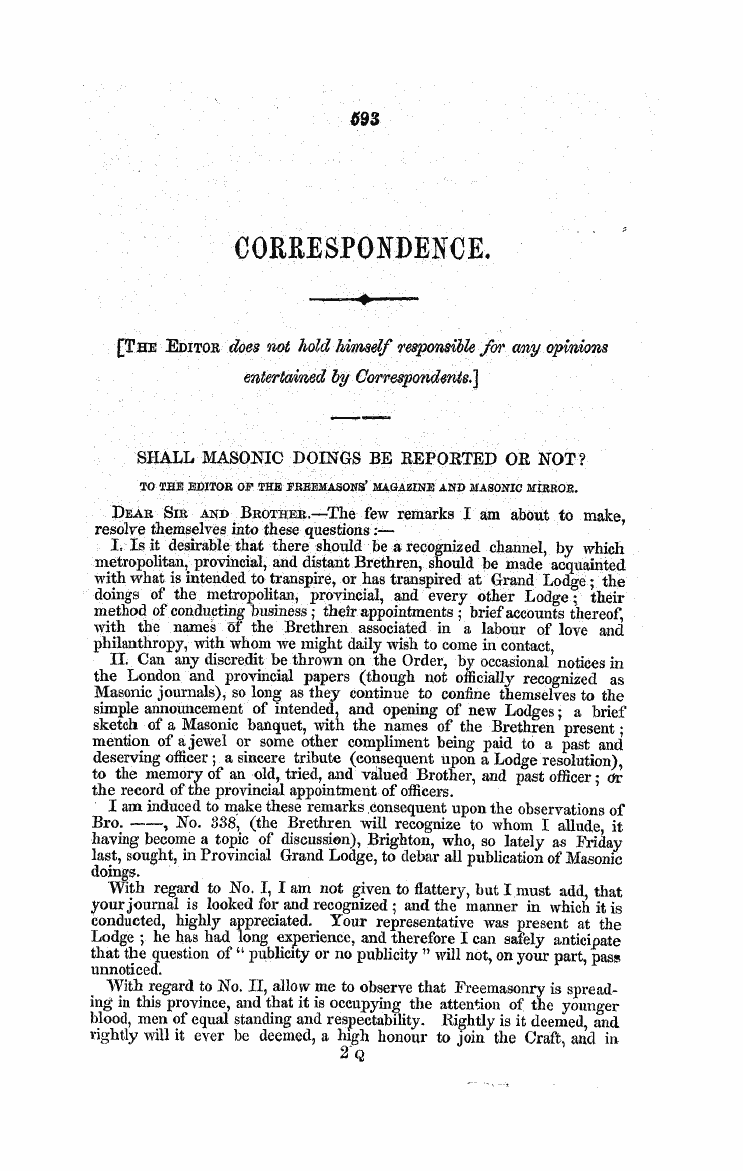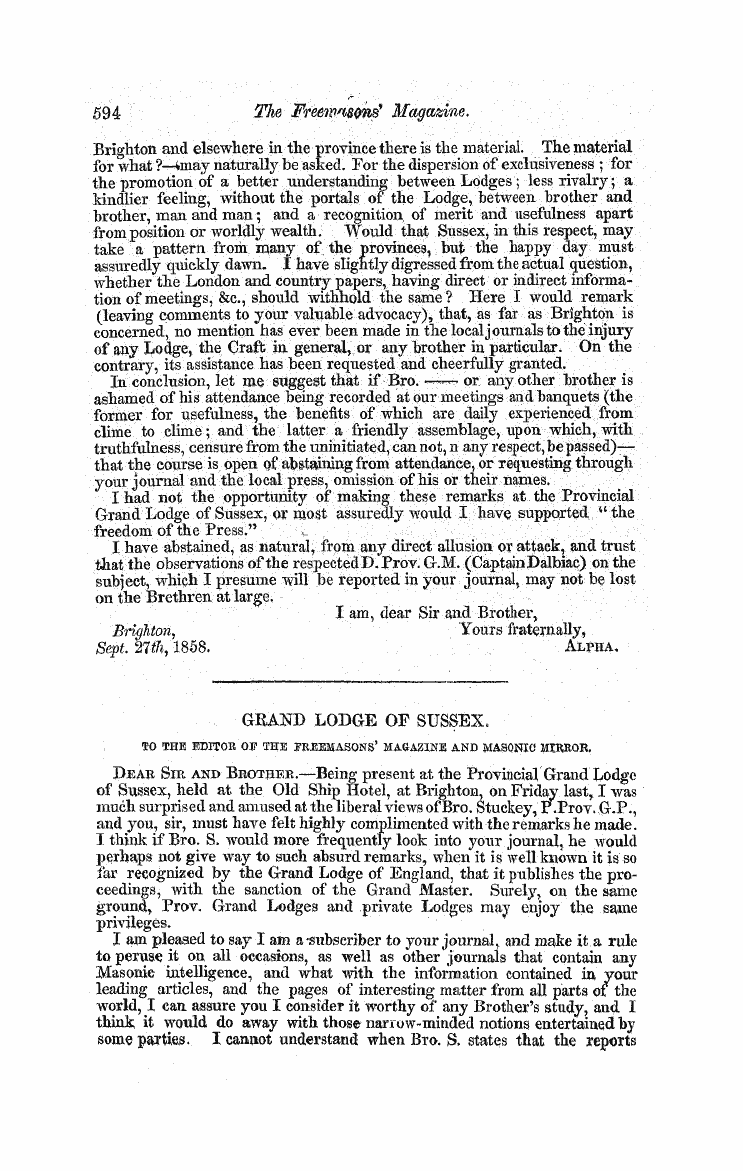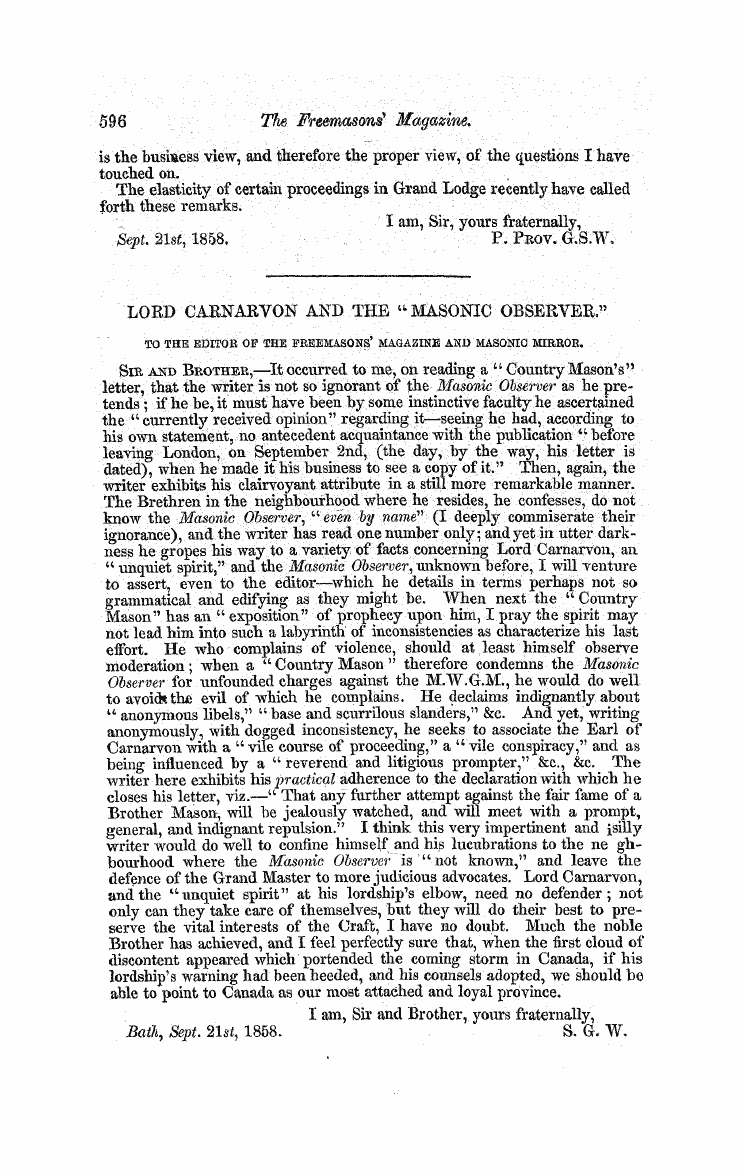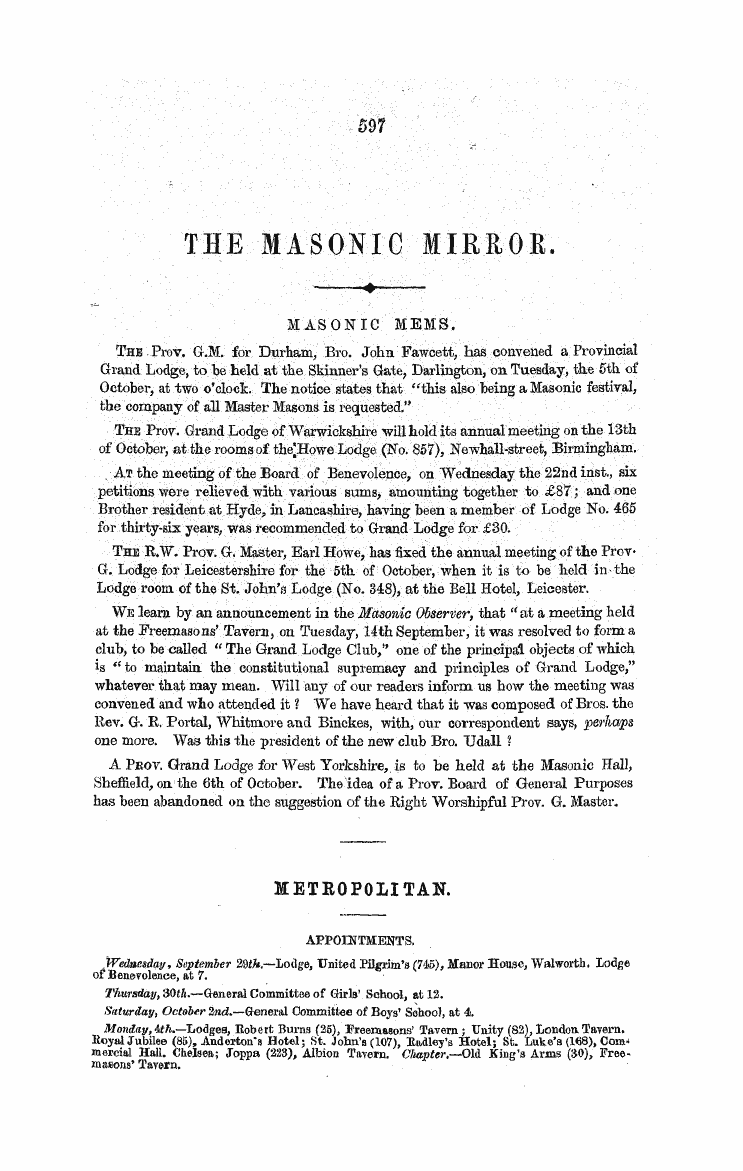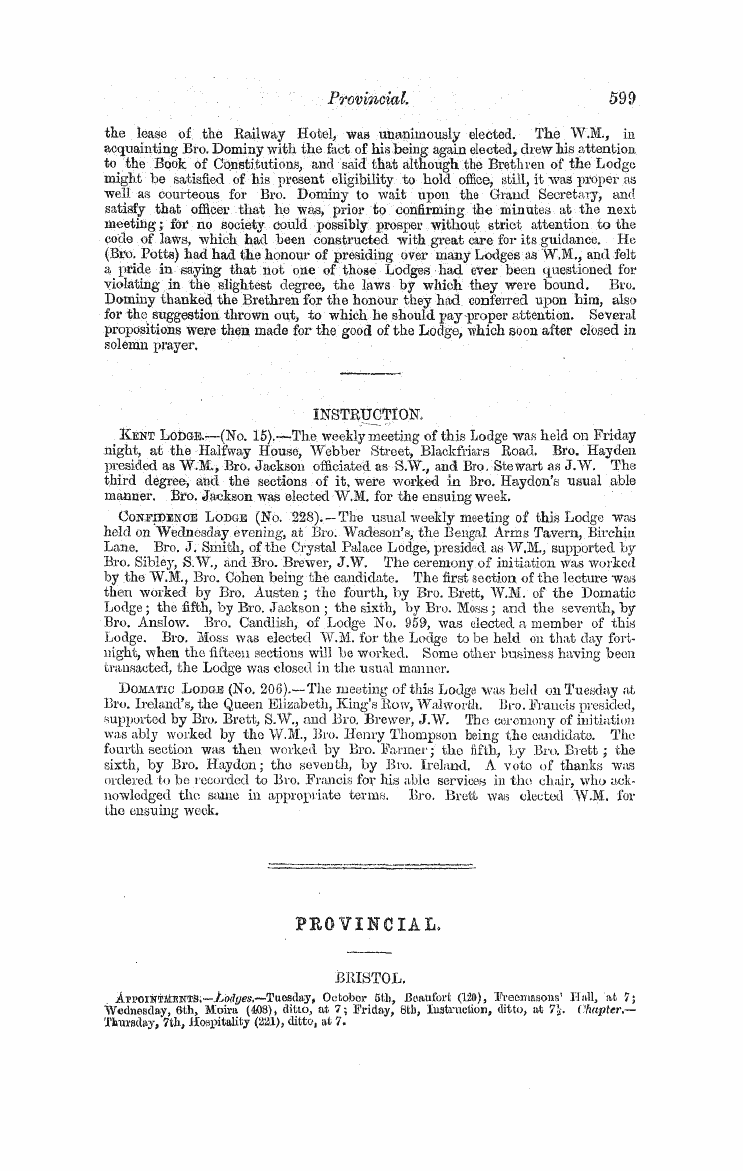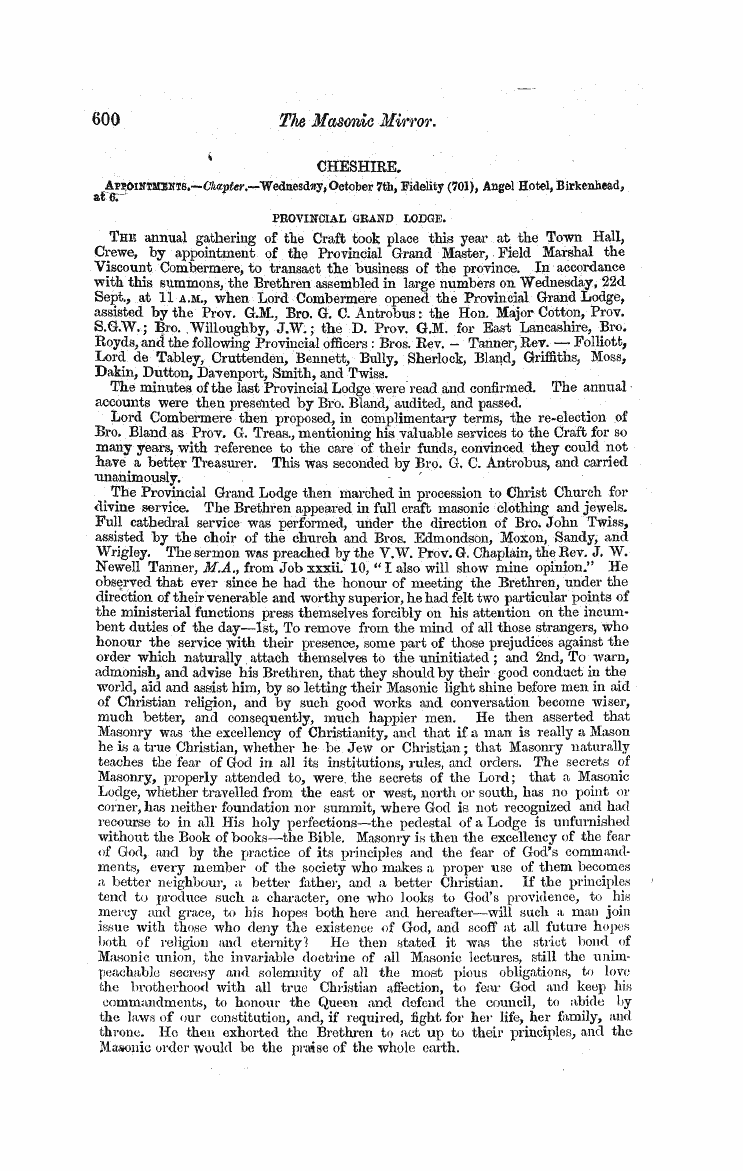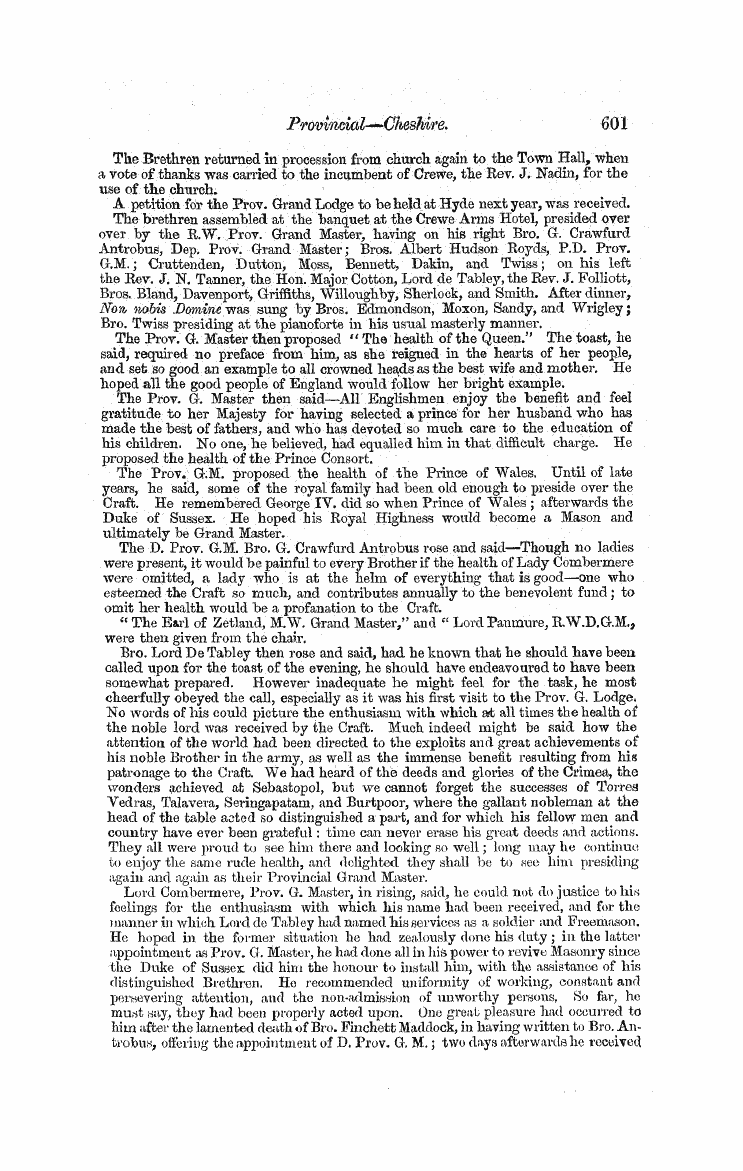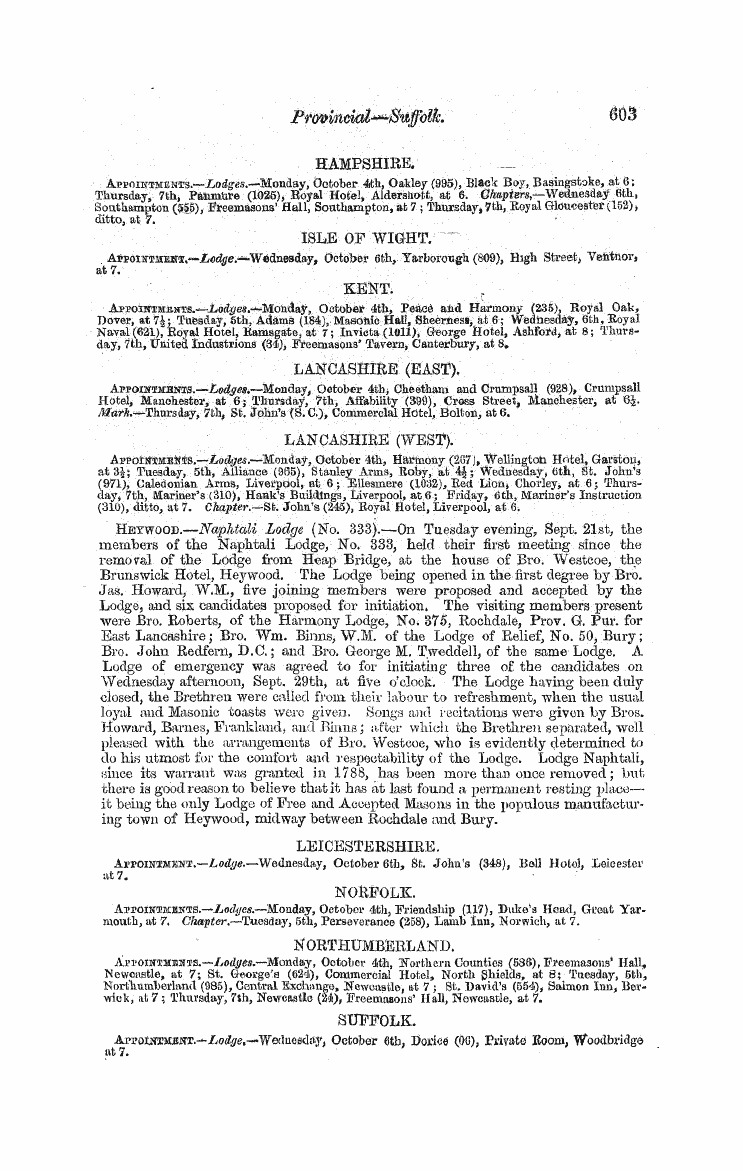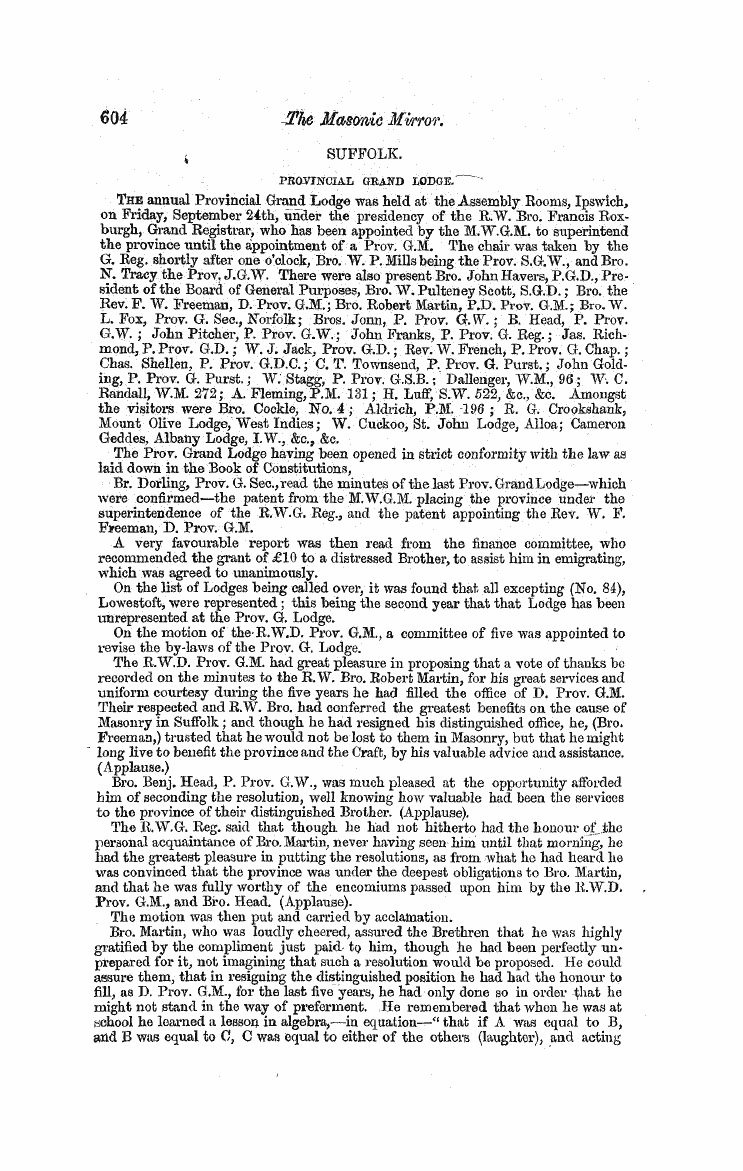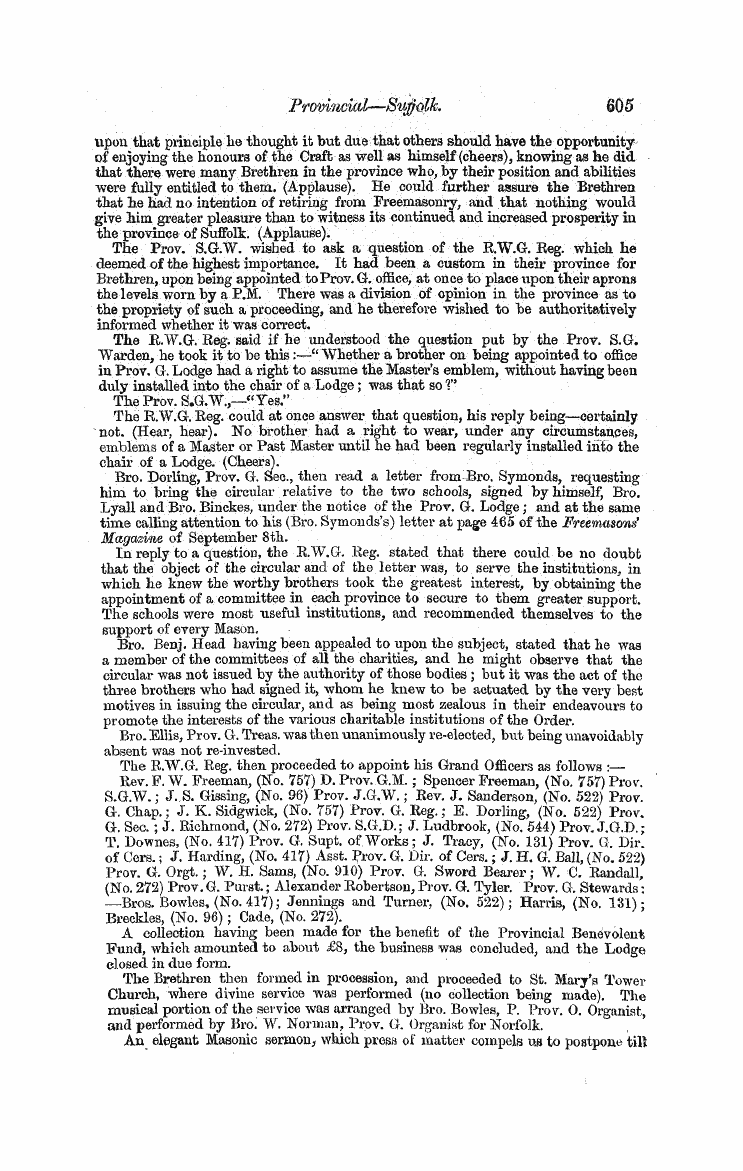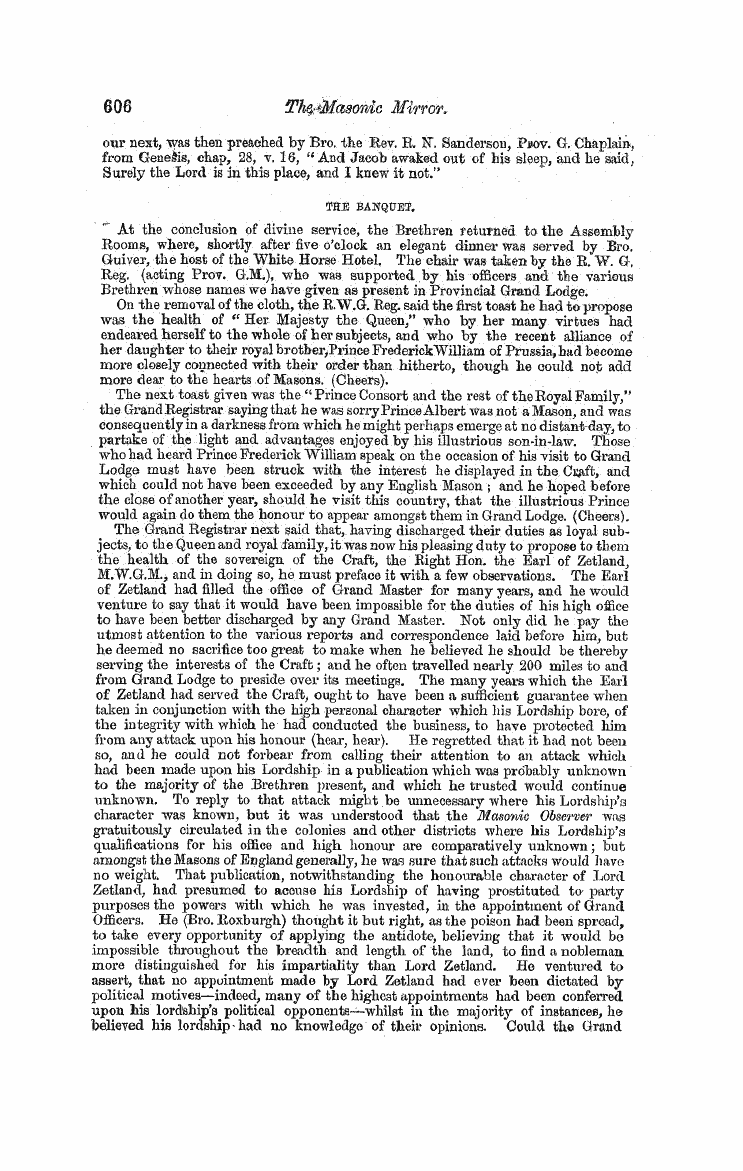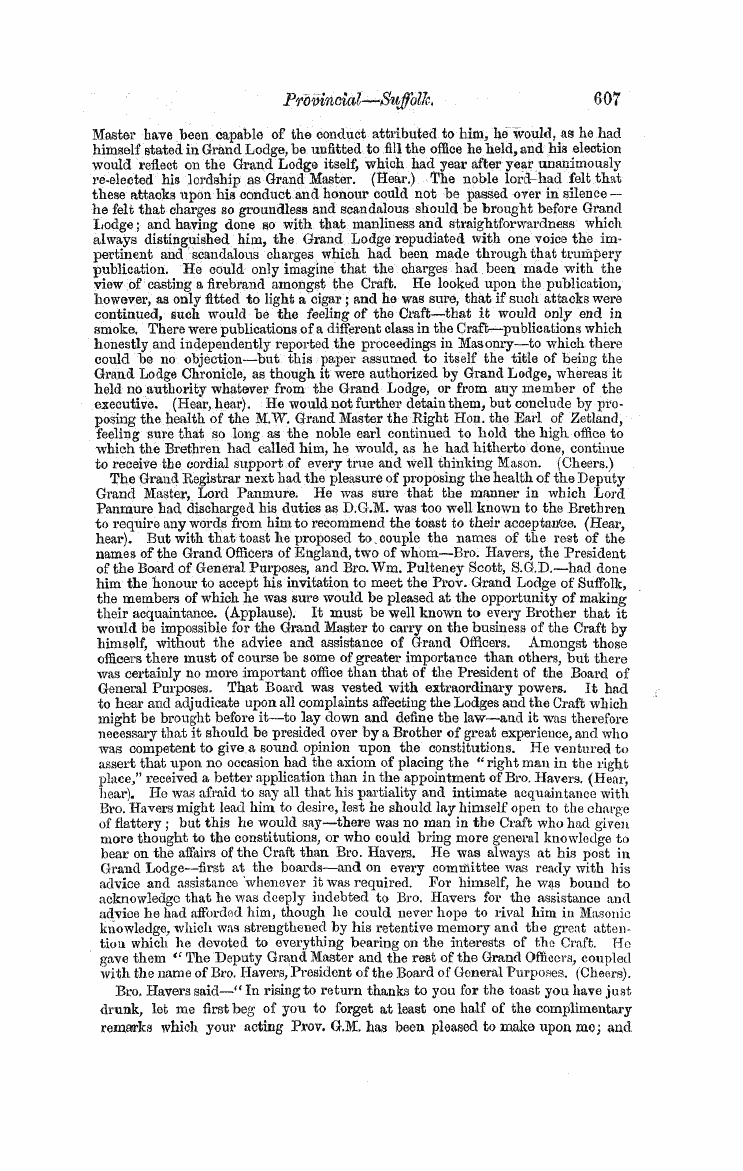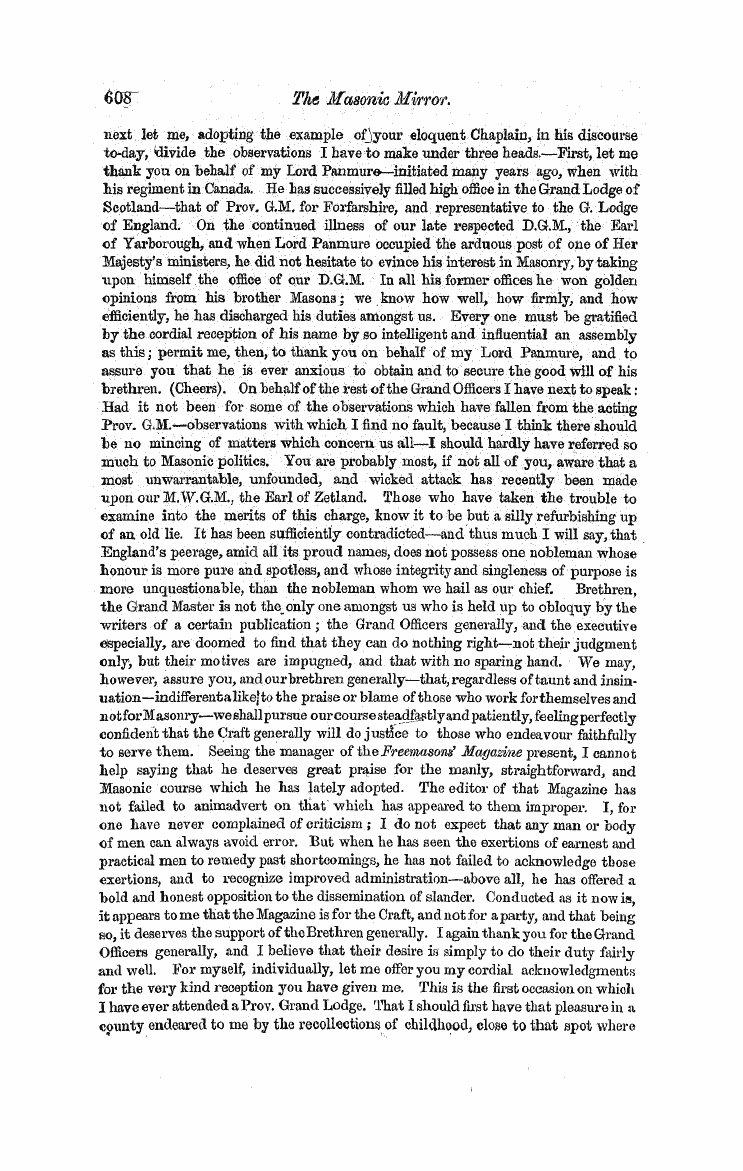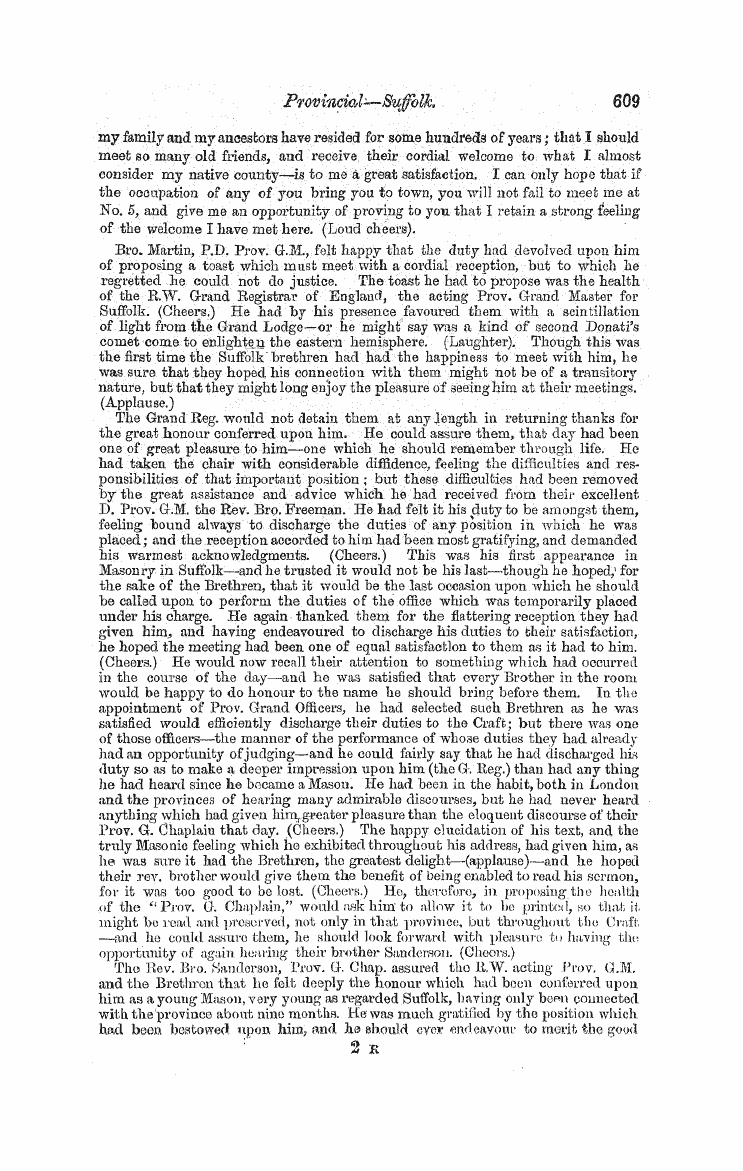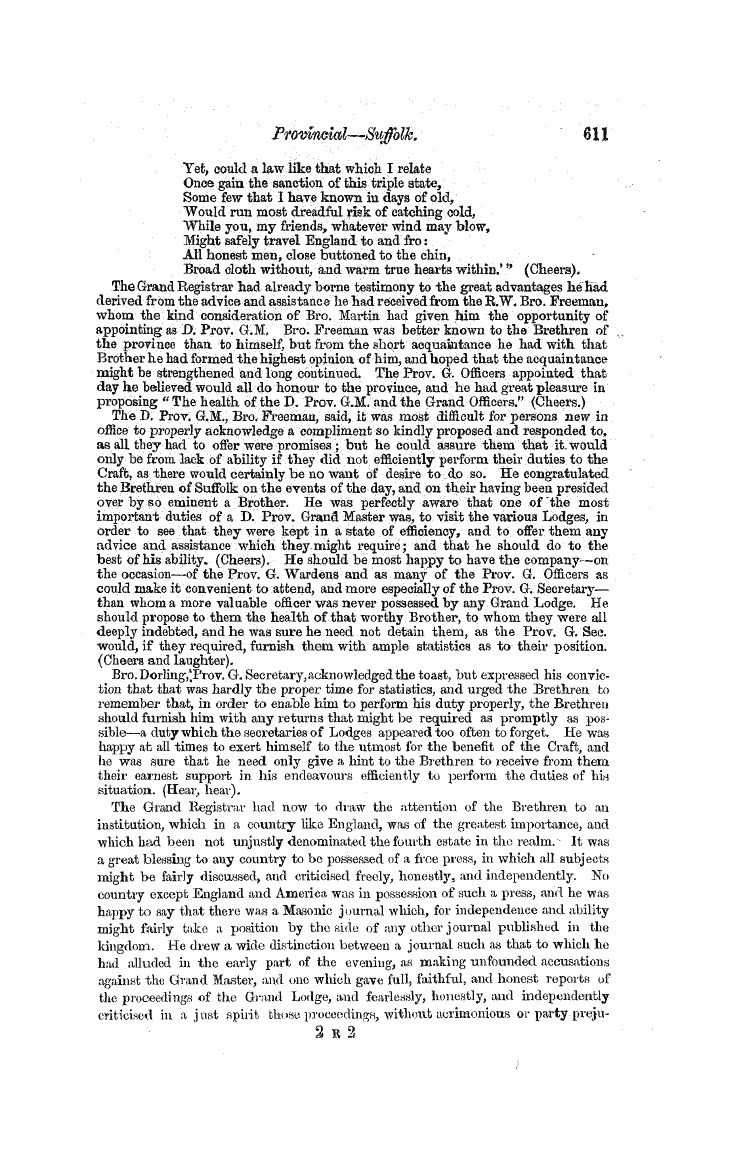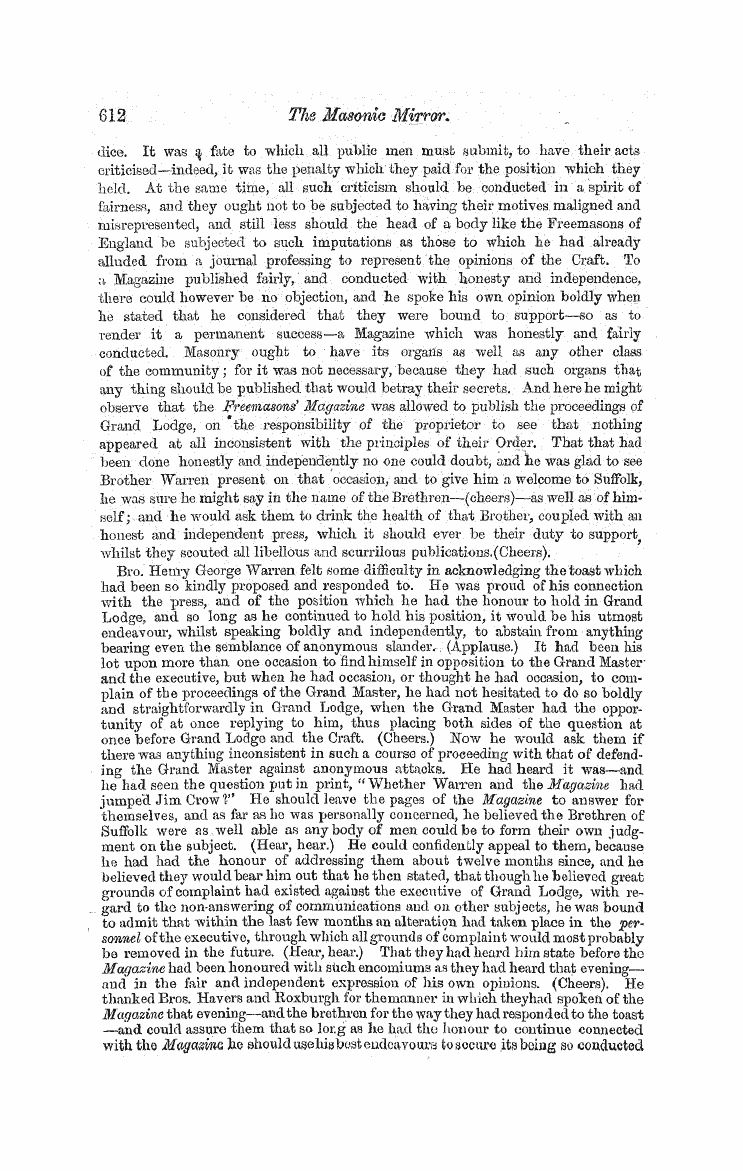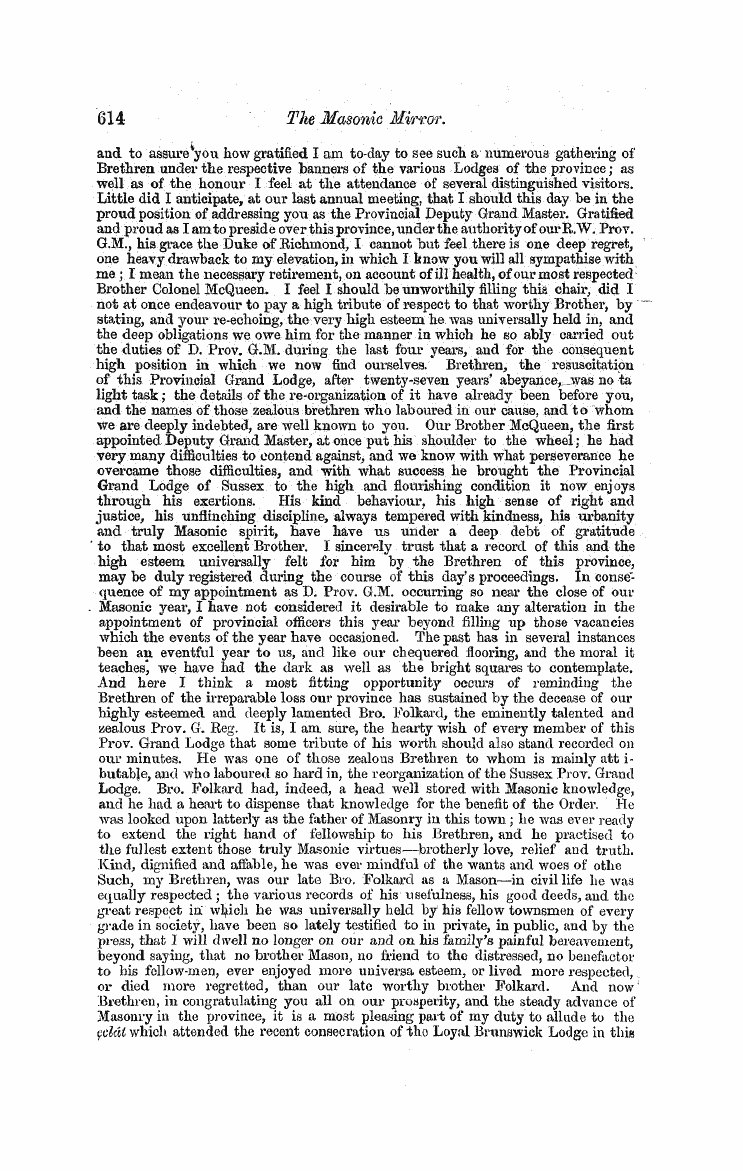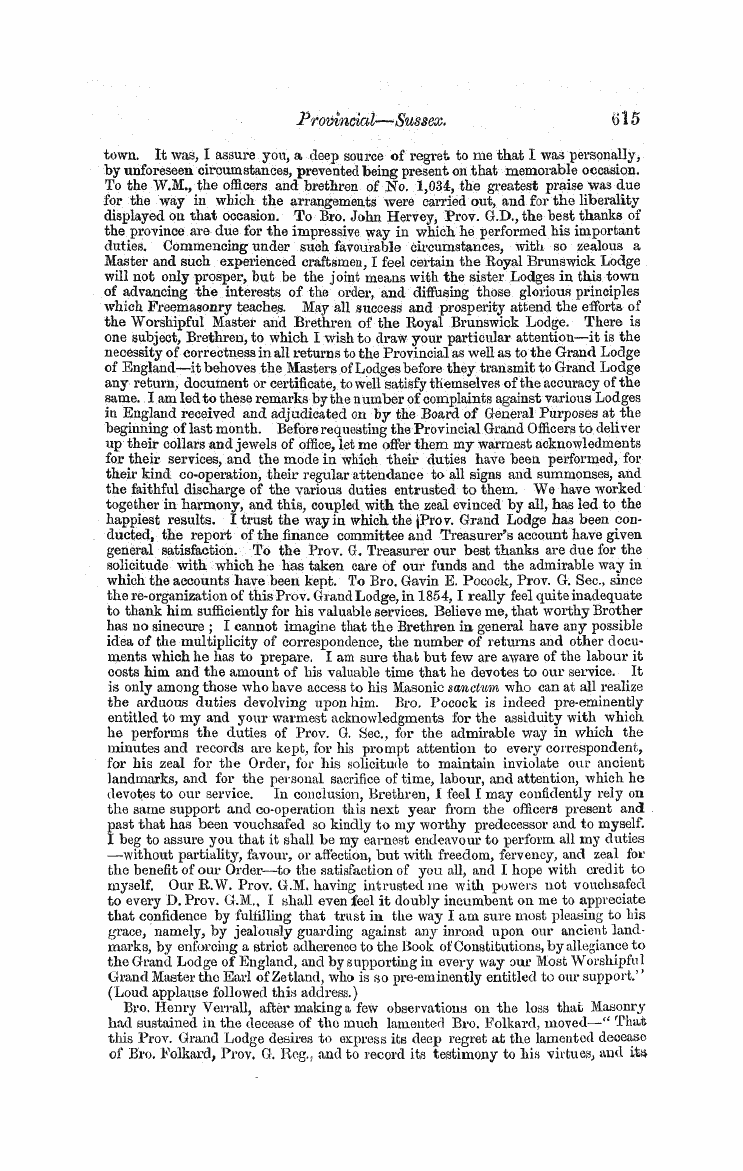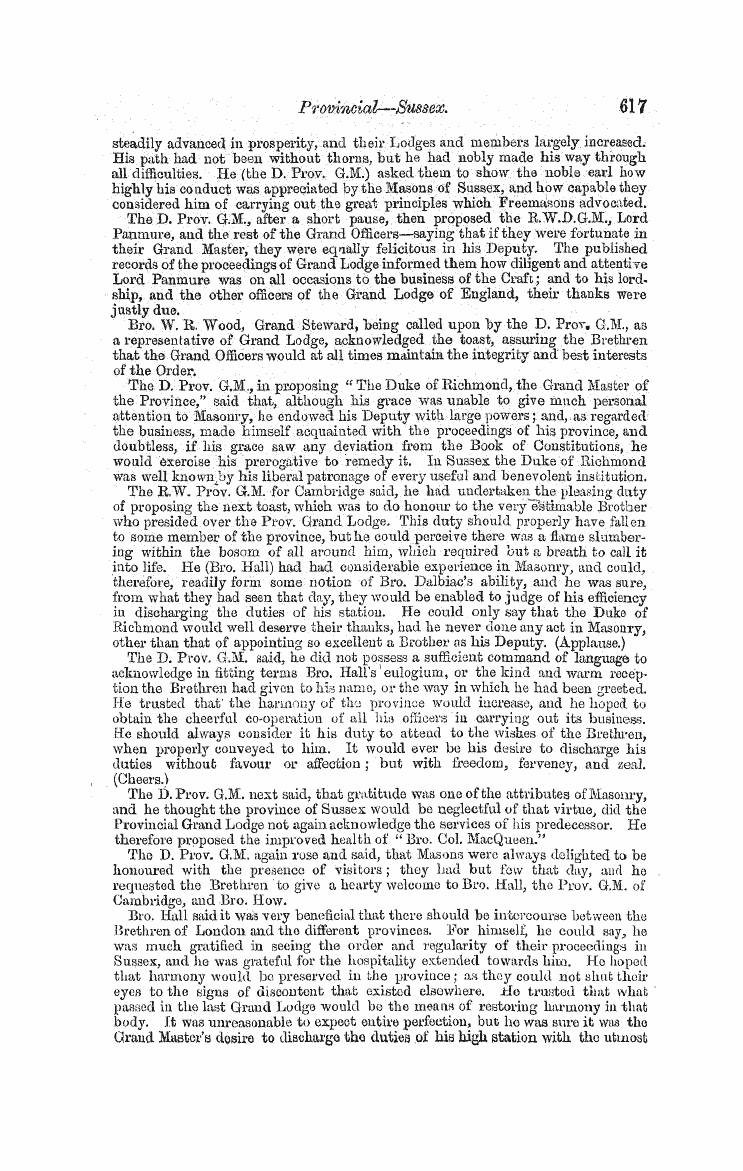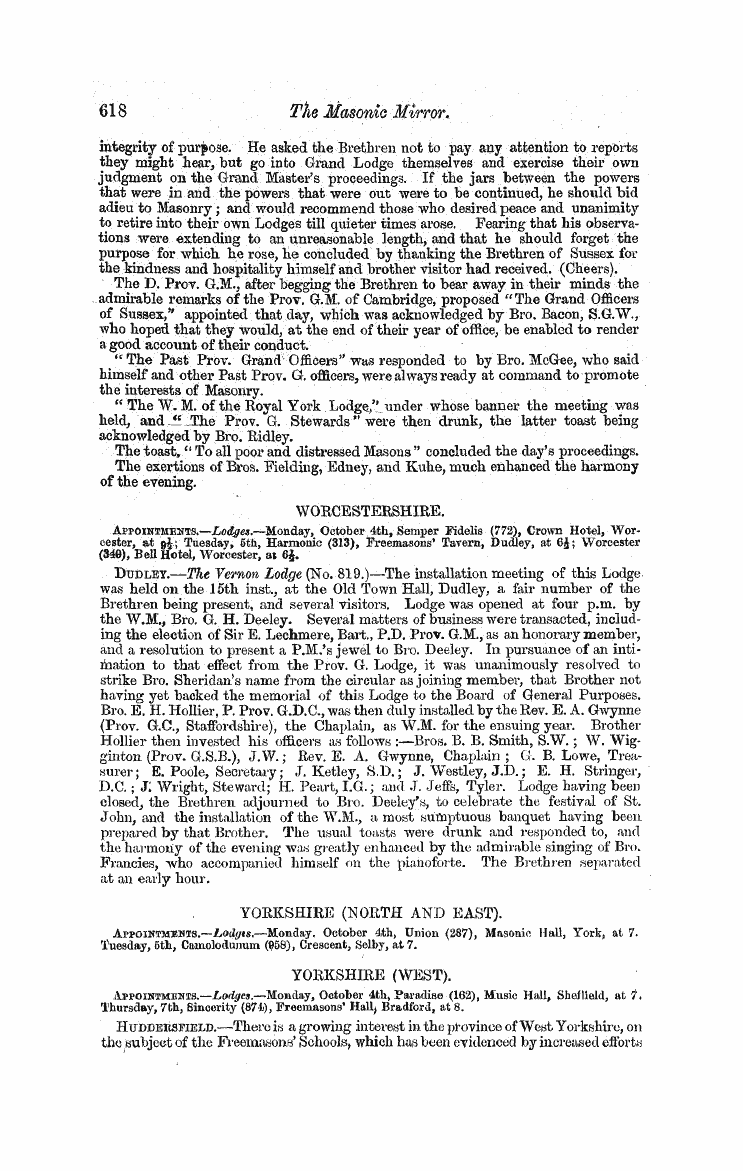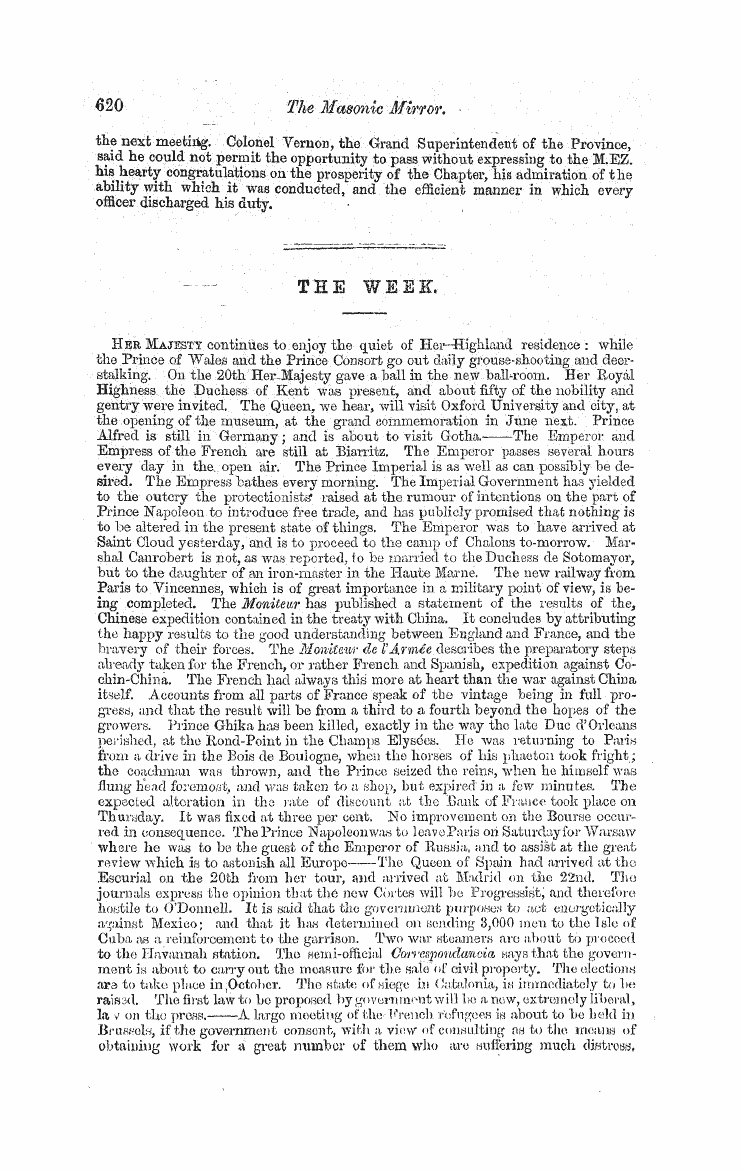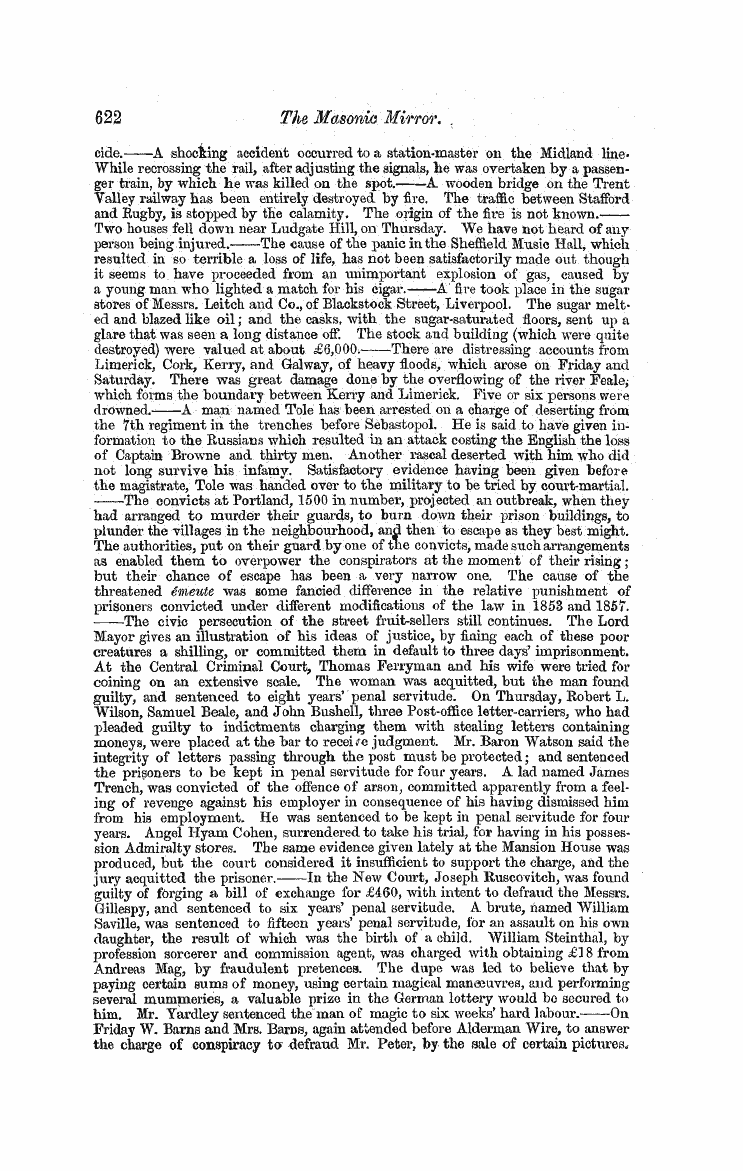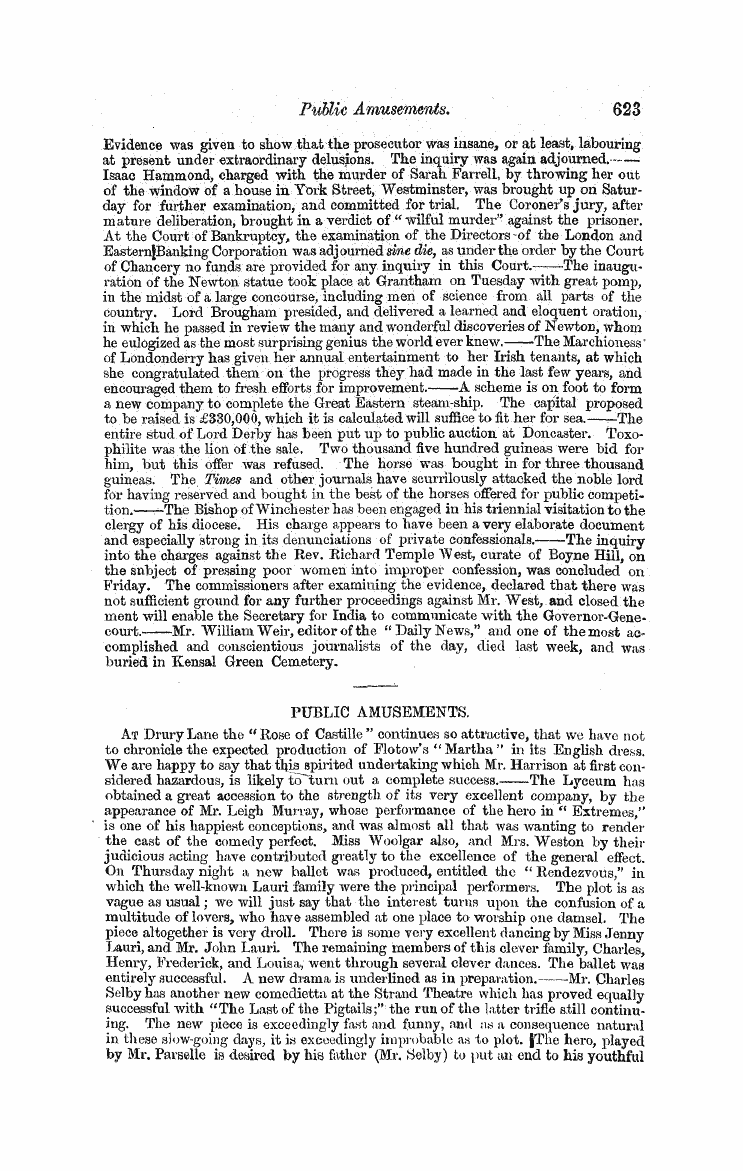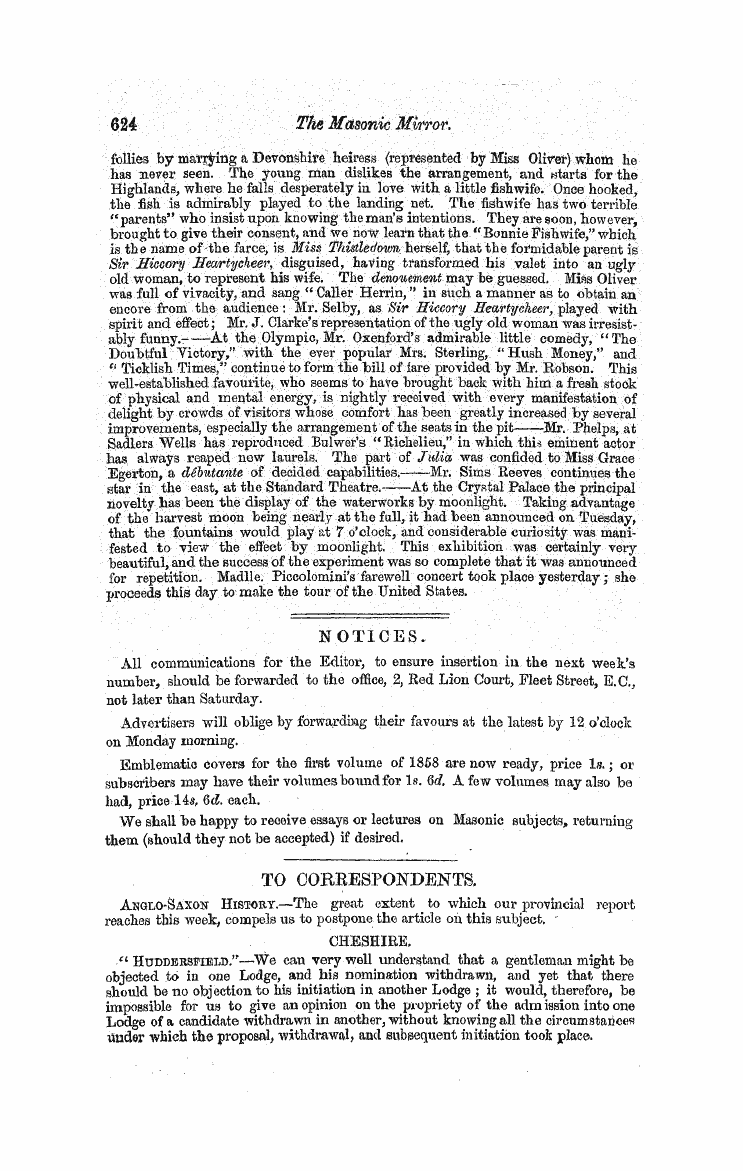Note: This text has been automatically extracted via Optical Character Recognition (OCR) software.
The Anc^
and when the aspirant had passed through them all , he was initiated . They were , principally , to pass through fire and water , to undergo much journeying , to endure hunger , cold , thirst , and in a word , every toil of tliis nature . Oh passing the second of these tests , we find that iEneas , in alarm , struck at the shades with his sword , till reminded by his guide that
they were but phantoms . So , in another account of ancient initiation , we find it said of the aspirant—44 Entering now into the mystic dome , he is filled with horror and amazement . He is seized with solicitude and a total perplexity : he is unable to move a step forward , and at a loss to find the entrance to that road , which is to lead him to the place he aspires to till the prophet or
conductor , laying open the vestibule of the temple , " & c . Our hero had now arrived at the banks of the Cocytus , and is amazed at the number of shades who hover about it anxious for a passage . These , his guide tells him , are those to whom the rite of
sepulture has ii ot been accorded , and who are consequently doomed to wander . on ' this shore for a hundred years . Here Charon , the ferryman of the shades , opposes his progress , and refuses to take him over the stream , till the sight of the golden bough—the passport of all such living men as ( few in number as they were ) had visited the infernal regions—procures him a free passage .
Having passed the three-headed Cerberus , whom the Sibyl appeased with a medicated cake which cast him into a slumber , they were now in the proper regions of the dead . Virgil divides these regions into three parts , which may be called , so to speak—I . Purgatory ; 2 . Tartarus ; 3 . Elysium . Of these three states Tartarus was said to be eternal ; about Elysium there were two opinions , one , that as the abode of the happy and good , it was eternal ; the other , that the place of eternal haj > piness was not in the regions below the earth . The mysteries observed the same three divisions . We find that Virgil places in the first of these three abodes or states , suicides , extravagant lovers , and ambitious
warriors ; all those , indeed , who had indulged such of their passions as had rendered them perhaps rather miserable than wicked . It is remarkable that among these is placed one ofthe initiated ( 1 . 484 . ) u . . . . Cercriquc sacrum Polyphocten . "
This however was agreeable to the public doctrine of the mysteries , which taught that initiation without virtue was useless , but that if united with virtue in this life , it procured men great advantages over others in a future state . Tho poet , in this place , especially points out the misery of suicide ( 1 . 434-437 . ) : —¦
Proxima delude tenent ma ^ sti loca , qui sibi letium Irisontes perperere manu , lucemque perosi Projecere animus . Qiuim vcllent adhere in alto Nunc et paupericm et duros perferre labores ! ,,: 1 * ic The next are the abodes of these wretched ones , who though free from crime
Note: This text has been automatically extracted via Optical Character Recognition (OCR) software.
The Anc^
and when the aspirant had passed through them all , he was initiated . They were , principally , to pass through fire and water , to undergo much journeying , to endure hunger , cold , thirst , and in a word , every toil of tliis nature . Oh passing the second of these tests , we find that iEneas , in alarm , struck at the shades with his sword , till reminded by his guide that
they were but phantoms . So , in another account of ancient initiation , we find it said of the aspirant—44 Entering now into the mystic dome , he is filled with horror and amazement . He is seized with solicitude and a total perplexity : he is unable to move a step forward , and at a loss to find the entrance to that road , which is to lead him to the place he aspires to till the prophet or
conductor , laying open the vestibule of the temple , " & c . Our hero had now arrived at the banks of the Cocytus , and is amazed at the number of shades who hover about it anxious for a passage . These , his guide tells him , are those to whom the rite of
sepulture has ii ot been accorded , and who are consequently doomed to wander . on ' this shore for a hundred years . Here Charon , the ferryman of the shades , opposes his progress , and refuses to take him over the stream , till the sight of the golden bough—the passport of all such living men as ( few in number as they were ) had visited the infernal regions—procures him a free passage .
Having passed the three-headed Cerberus , whom the Sibyl appeased with a medicated cake which cast him into a slumber , they were now in the proper regions of the dead . Virgil divides these regions into three parts , which may be called , so to speak—I . Purgatory ; 2 . Tartarus ; 3 . Elysium . Of these three states Tartarus was said to be eternal ; about Elysium there were two opinions , one , that as the abode of the happy and good , it was eternal ; the other , that the place of eternal haj > piness was not in the regions below the earth . The mysteries observed the same three divisions . We find that Virgil places in the first of these three abodes or states , suicides , extravagant lovers , and ambitious
warriors ; all those , indeed , who had indulged such of their passions as had rendered them perhaps rather miserable than wicked . It is remarkable that among these is placed one ofthe initiated ( 1 . 484 . ) u . . . . Cercriquc sacrum Polyphocten . "
This however was agreeable to the public doctrine of the mysteries , which taught that initiation without virtue was useless , but that if united with virtue in this life , it procured men great advantages over others in a future state . Tho poet , in this place , especially points out the misery of suicide ( 1 . 434-437 . ) : —¦
Proxima delude tenent ma ^ sti loca , qui sibi letium Irisontes perperere manu , lucemque perosi Projecere animus . Qiuim vcllent adhere in alto Nunc et paupericm et duros perferre labores ! ,,: 1 * ic The next are the abodes of these wretched ones , who though free from crime































































































































































































